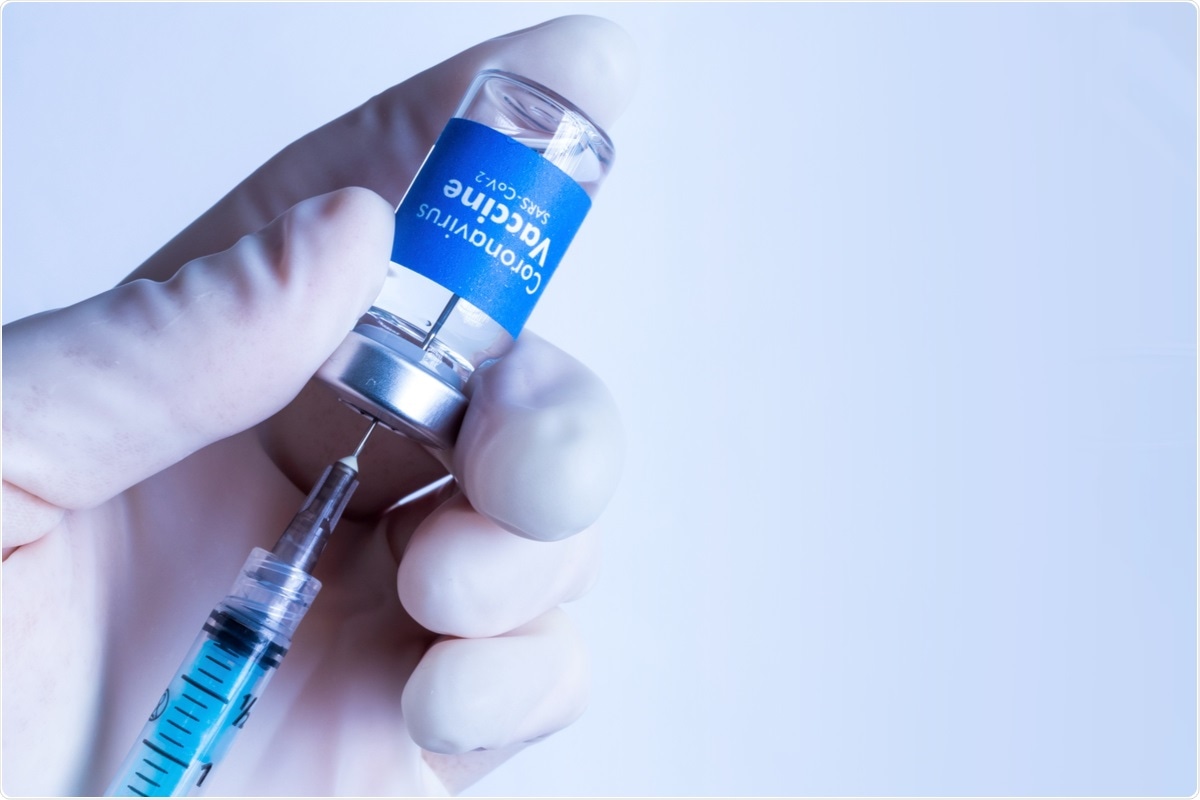The rapidly developed vaccines against the severe acute respiratory syndrome coronavirus 2 (SARS-CoV-2) remain the most vital tools available to end the coronavirus disease 2019 (COVID-19) pandemic. As of November 2, 2021, over 248 million confirmed cases of COVID-19 and over 5 million deaths have been reported globally.
As of November 2, 2021, 49.6% of the global population has received at least one dose of the COVID-19 vaccine. Comparatively, about 67% of the population within the United States has received at least one dose of the COVID-19 vaccine. However, the situation in developing countries is much different, with some low-income countries having only 2.8% of their population who has received their first dose.
 Study: COVID-19 Vaccine Booster: To Boost or Not to Boost. Image Credit: adrianosiker.com / Shutterstock.com
Study: COVID-19 Vaccine Booster: To Boost or Not to Boost. Image Credit: adrianosiker.com / Shutterstock.com
Previous studies have suggested that the antibody production triggered by COVID-19 vaccinations is falling. As a result, the United States Centers for Disease Control and Prevention (CDC) has recently recommended booster vaccinations for individuals who received the Moderna and Pfizer Biotech vaccines who are sixty-five years or older, have underlying health conditions, live in long-term care, and/or work in high-risk settings.
In a recent Infectious Disease Reports study, the authors provide an overview of current literature available to assess the need for COVID-19 vaccine booster doses and their potential target population.
Study findings
The efficacy of vaccines is measured by antibody levels or titers used as surrogate biomarkers. It is expected that antibody levels elicited from a vaccine will drop slowly over time, which has been observed with current COVID-19 vaccines. However, there is insufficient data that suggests this drop in antibody levels correlates to a decline in protection from COVID-19.
Previous research conducted on thirty-four COVID-19 messenger ribonucleic acid (mRNA)-based vaccine recipients showed that at 119 days after the first dose, or 90 days after the second dose, a decline in neutralizing antibodies occurred. However, all participants displayed antibody levels that were significantly elevated above baseline up to three months after receiving their second dose. It was also observed that vaccinated individuals showed higher levels of neutralizing antibodies when compared to people who acquired them as a result of a previous infection.
Pfizer BioNTech released data that states the efficacy of their two-dose mRNA vaccine against symptomatic COVID-19 drops from 96% four weeks following the second dose to 84% six months following the second dose. A decline in efficacy was also observed in the data released by Moderna, with efficacy dropping from 94% to 90% six months post-vaccination.
Third (booster) doses of the Pfizer BioNTech, Moderna, Sinovac, and Oxford-AstraZeneca vaccines could potentially improve neutralizing antibody titers. Trials of the third dose of these vaccines displayed similar vaccine-related side effects that were seen in the first and second-dose trials. However, implementing booster vaccine programs in the developed world when the vast majority of the developing world have yet to receive their first dose may be met with ethical condemnation.
Multiple SARS-CoV-2 variants have been identified globally, some of which possess mutations in the spike protein that may cause higher transmissibility, more severe disease, and allow the virus to evade immune responses elicited both naturally or by vaccination. For example, SARS-CoV-2 variants of concern (VOCs) including the Alpha, Beta, Gamma, and Delta variants cause more severe disease and are more transmissible when compared to the wild-type SARS-CoV-2 strain. Fortunately, recent studies have shown that current COVID-19 vaccines elicit robust immune responses against the SARS-CoV-2 VOCs.
Evidence on which groups within the population may benefit from a third dose is limited. However, it is believed that immunocompromised individuals could benefit the most, as they may not produce an adequate immune response following two doses. To this end, one recent study showed that only 40% of solid-organ transplant immunocompromised individuals had anti-SARS-CoV-2 antibodies four weeks after their second dose, which was increased to 68% following a third dose.
As many developed countries prepare to roll out third doses to their populations, many experts are questioning the global implications of worsening vaccine inequity. The director-general of the World Health Organization has stated that it is unacceptable for countries that have already used a great bulk of the worldwide supply of vaccines to use even more of it. It has also been highlighted by experts that by depriving lower-income countries with higher population densities and large amounts of people living in close proximity, the global efforts to control the pandemic may prove futile.
Implications
Neutralizing antibody titers against SARS-CoV-2 and its subsequent variants may be boosted with the implementation of third doses of the COVID-19 vaccines, particularly in immunocompromised individuals, individuals with underlying conditions, and those at risk of severe complications associated with the disease. However, it is essential to exercise appropriate use criteria for additional vaccine doses without jeopardizing global vaccination efforts and worsening the issue of global vaccine inequity.
Journal reference:
- Shekhar, R., Garg, I., Pal, S., et al. (2021). COVID-19 Vaccine Booster: To Boost or Not to Boost. Infectious Disease Reports 13(4); 924-929. doi:10.3390/idr13040084.